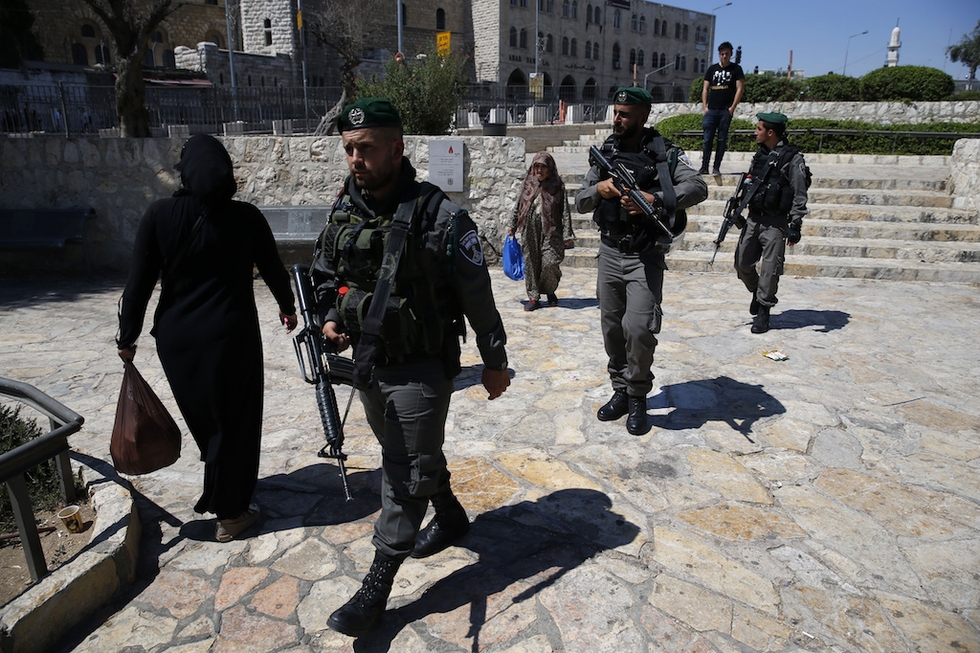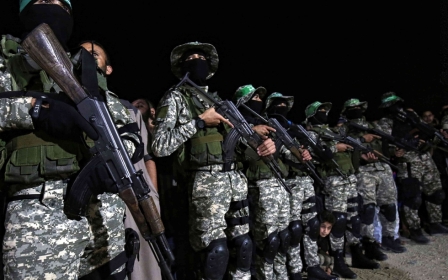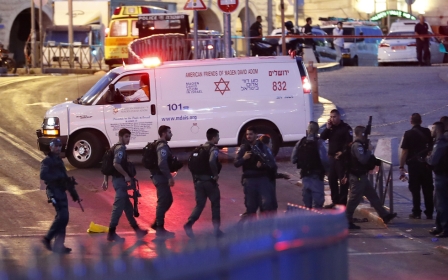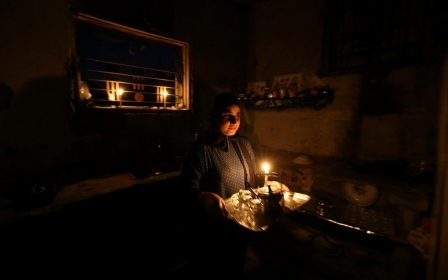Israel rescinds 250,000 entry permits handed to Palestinians for Ramadan

The Israeli government has rescinded 250,000 permits for Palestinians to visit Jerusalem following the fatal stabbing of an Israeli policewoman in Jerusalem on Friday.
Israel had eased restrictions on the entry of Palestinians to Jerusalem and Israel from the West Bank for Ramadan.
Following the attack, Prime Minister Benjamin Netanyahu cancelled permission for Palestinians to visit family members in Jerusalem and Israel, police said.
Netanyahu was also considering sealing off the Damascus Gate area to the public.
On Saturday, police cracked down on West Bank Palestinians without permits in Jerusalem, locating and sending home about 350.
Major General Yoav Mordechai, the head of COGAT, the Israeli defence ministry agency responsible for civilian affairs in the Palestinian territories, said the 250,000 family visit permits were cancelled in response to "encouragement to terrorism" by Palestinian President Mahmud Abbas's Fatah movement.
In a Facebook post in Arabic, Mordechai charged that Fatah had congratulated the attackers in the stabbing incident.
Three Palestinians attacked officers just outside the walled Old City in annexed East Jerusalem late on Friday before being shot dead by security forces, Israeli police said.
According to police, two assailants opened fire on a group of officers who returned fire, and a third stabbed the border policewoman a short distance away before being shot.
Policewoman Hadas Malka, a 23-year-old staff sergeant major, was taken to hospital in critical condition and later died of her wounds.
Netanyahu meanwhile demanded that the Palestinian Authority, as well as the rest of the world, condemn the attack.
Palestinian militant factions on Saturday dismissed a claim by the Islamic State group that it was behind the fatal stabbing of the policewoman, saying the assailants came from their ranks.
The Israeli security services also raised doubts about the veracity of the IS claim, its first for an attack in Jerusalem or inside Israel, which came with the group facing defeat in their Iraq and Syria bastions.
In an online statement, IS said militant fighters had targeted a "gathering of Jews," warning that "this attack will not be the last".
Hamas, the Palestinian Islamist group that runs the Gaza Strip, dismissed the IS claim, saying the attackers had come from among its own ranks and those of the leftist Popular Front for the Liberation of Palestine (PFLP).
The assault took place as tens of thousands of Palestinians held night prayers at the nearby Al-Aqsa mosque compound, Islam's third-holiest site, on the third Friday of the holy fasting month of Ramadan.
'Muddy the waters'
In its statement, IS said the attack was "revenge for the religion of Allah and the sanctities of the violated Muslims".
Hamas spokesman Sami Abu Zuhri said the IS claim was an attempt to "muddy the waters," adding that the attack was carried out by "two Palestinians from the PFLP and a third from Hamas".
The killing was "a natural response to the crimes of the occupier," he said.
A spokesman for Israel's Shin Bet internal security agency told AFP it was "impossible to corroborate [the IS claim] at this point".
The Israeli army said the assailants appeared to have acted independently, like many of the attackers in unrest that has rocked Israel and the occupied territories since October 2015.
"A preliminary army intelligence evaluation found no evidence of them belonging to any group; rather they appear to have been a typical popular terror squad," an army spokeswoman said.
Hamas and the PFLP identified the three assailants as Bara Ata, 18, Osama Ata, 19, and Adel Ankush, 18, all from the village of Deir Abu Mashal near the West Bank city of Ramallah.
The Shin Bet said they had been implicated in previous "popular terror activity". The army sealed off the assailants' home village while troops went house to house, arresting two youths before leaving after a number of hours.
A family member of one of the three flatly rejected any connection to IS, angrily telling AFP the militant group's claim was a "lie" that didn't deserve mention.
UN envoy 'appalled'
UN Middle East peace process coordinator Nickolay Mladenov said that "terrorist acts" like Friday's "must be clearly condemned by all".
He also spoke out against the way both Hamas and PFLP had described the incident.
"I am appalled that once again some find it appropriate to justify such attacks as 'heroic'," Mladenov said in a statement.
The unrest that broke out in October 2015 has claimed the lives of 272 Palestinians, 42 Israelis, two Americans, two Jordanians, an Eritrean, a Sudanese and a Briton, according to an AFP tally.
Israeli authorities say most of the Palestinians killed were carrying out knife, gun or car-ramming attacks.
Middle East Eye propose une couverture et une analyse indépendantes et incomparables du Moyen-Orient, de l’Afrique du Nord et d’autres régions du monde. Pour en savoir plus sur la reprise de ce contenu et les frais qui s’appliquent, veuillez remplir ce formulaire [en anglais]. Pour en savoir plus sur MEE, cliquez ici [en anglais].




